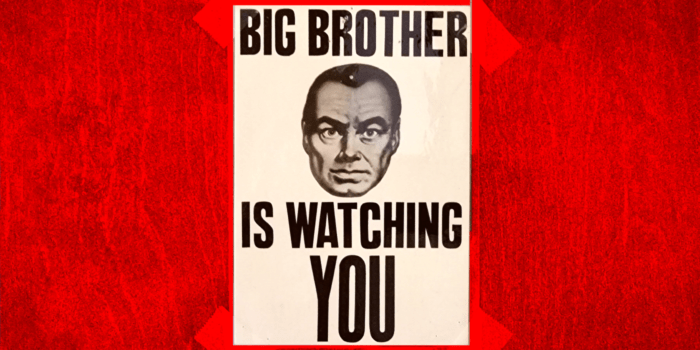(Molly Bruns, Headline USA) A recent survey revealed that one-third of Generation Z (adults under age 30) believed that in-home government surveillance via security cameras and other means was a good idea.
According to the Post Millennial, the CATO survey showed that 75% of Americans overall rejected the idea, while 33% of so-called Zoomers approved of the plan.
NEW CATO SURVEY: Nearly a third of Gen Z support the government installing surveillance cameras in every household to prevent crime and abuse.
Opposition to Orwelian-government monitoring has been assumed to be both overwhelming and obvious. But is it?
A #CatoPolls [thread]… pic.twitter.com/5BeLsp953m
— Emily Ekins (@emilyekins) June 5, 2023
The survey asked respondents if they would “favor or oppose the government installing surveillance cameras in every household to reduce domestic violence, abuse, and other illegal activity?”
The vast majority of people age 45 to 64 said they were against the idea; 29% of 18- to 29-year-olds said they were in favor of it.
Overall, three-quarters of the 2,000 surveyed said they were against government interference in private homes; however, 14% voted in favor, and the final 10% said they were unsure.
The figures also showed that minorities and those on the center-left of the political aisle were more open to in-home surveillance cameras.
The pollsters also said younger people may have accepted government surveillance more readily because, as a general rule, they seem more willing to prioritize safety over freedom.
The authors of the study admitted they were not sure “how much of this preference for security over privacy or freedom is something unique to this generation (a cohort effect) or simply the result of youth (age effect),” but they did concede that it may be a generational phenomenon.
Americans over the age of 45, born in or before 1978, believed very different things about in-home government security in their younger years—likely a side effect of the Cold War and Soviet surveillance of their citizens.
Part of that paradigmatic change may also include less emphasis in education on the study of dystopian texts such as George Orwell’s 1984, in which Big Brother—the personification of mass-surveillance culture—is the chief antagonist.
Instead, Zoomers grew up associating “Big Brother” with a reality-television show where contestants voluntarily relinquished their privacy for fame and financial incentives.
Indeed, many youngsters have been conditioned from early on to accept surveillance culture through customs such as the holiday “Elf on a Shelf.”
And the ubiquitous presence of technology and social media have made such surveillance commonplace even if not openly acknowledged. Many young people, for instance, shrug off the threat of Chinese espionage and continue to use TikTok for entertainment value.
Amazon’s Alexa and Microsoft’s Xbox both recently were required to pay fines in the tens of millions of dollars for their inappropriate collection and storage of children’s private information.
The survey also asked respondents if they supported a Central Bank Digital Currency—a government backed electronic currency intended to supplant paper money while giving officials the ability to monitor and regulate private financial exchanges.
Although not many supported the CBDC, over half of CBDC supporters also “strongly support[ed]” greater government interference in the home.
Headline USA’s Ben Sellers contributed to this report.

